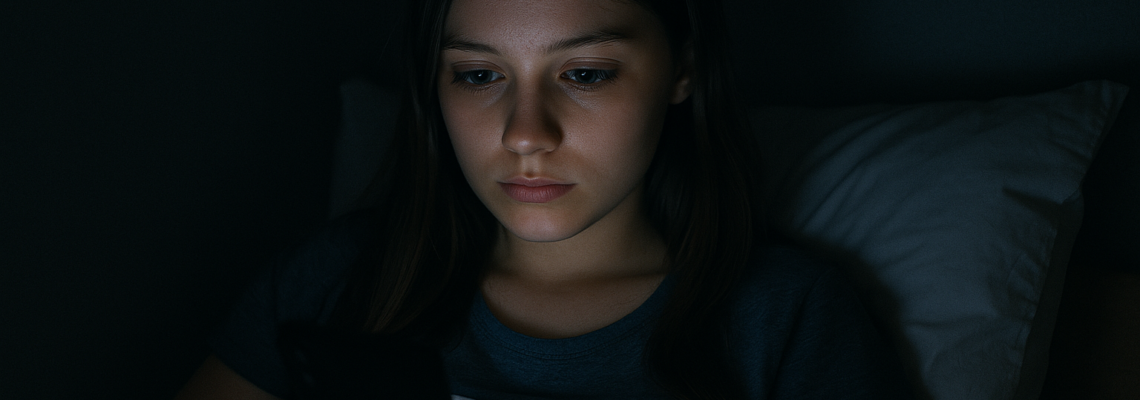
Screens Up, Mood Down? Research Ties Increased Screen Time to Depression in Teen Girls
- April 5, 2025
- 0 Likes
- 623 Views
- 0 Comments
A new study has shed light on a concerning link between increased screen time and the risk of depression in teenage girls. Researchers have found that the disruption of sleep patterns caused by excessive screen use may be a key factor contributing to this correlation.
The study explored the complex relationship between technology use, sleep, and mental health in adolescents. While the use of digital devices has become ubiquitous in modern life, this research adds to the growing body of evidence highlighting potential negative consequences, particularly for young women.
The findings suggest that the blue light emitted from screens can interfere with the production of melatonin, a hormone that regulates sleep. This disruption can lead to difficulties falling asleep, reduced sleep duration, and poorer sleep quality. These sleep problems, in turn, are known risk factors for depression.
The research emphasizes that the impact of screen time on mental health is likely multifaceted. While sleep disruption plays a significant role, other factors such as social comparison on social media, cyberbullying, and reduced physical activity may also contribute to the increased risk of depression in teen girls.
Experts recommend that parents, educators, and healthcare providers be aware of the potential risks associated with excessive screen time in adolescents. Promoting healthy sleep habits, encouraging balanced technology use, and fostering open communication about mental health are crucial steps in supporting the well-being of teenage girls.
The study underscores the importance of further research in this area to fully understand the complex interplay between screen time, sleep, and mental health in young people. It also highlights the need for interventions and strategies to mitigate the potential negative effects of technology use and promote positive mental health outcomes.

